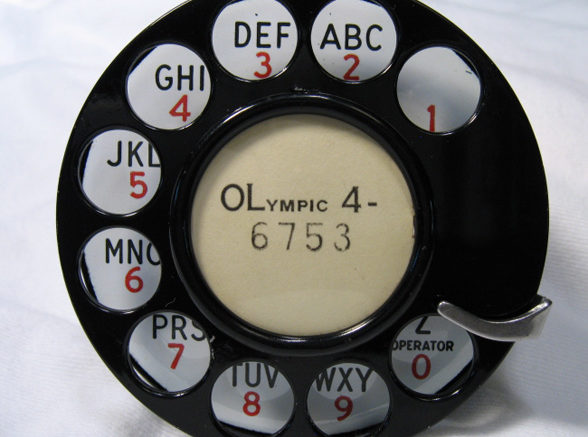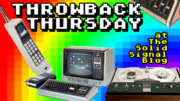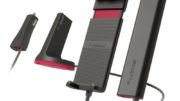Quick. What’s your best friend’s phone number? You get points if you got it right. Still, you probably can’t give the phone numbers of your ten closest relatives. The odds are overwhelming that you can give the phone numbers of the local fire, police, and hospital (not 911, the regular numbers.) Now, think of a world without phone numbers. If you’re like most people, you can’t.
It’s been years since we started hearing about getting rid of phone numbers. ZDNet brought us Microsoft’s “grand plan” back in 2008, and TechCrunch confidently said back in 2011. that phone numbers were “already dead.” In 2012, AT&T said they would would very much like to decommission its copper-based landline systems in favor of VOIP and other data-based services. In the last four years, both they and Verizon have made strides toward doing just that.
At the heart of it… they want to get rid of telephone services, and if they do that, what happens to the telephone number.
Telephone numbers came about nearly 100 years ago. Although telephones had been around for a generation, until that time all calls were connected manually by operators. Almon Strowger gets the credit for the first automatic exchange, giving people the ability to connect to any phone by number. Area codes came a few generations later.
There have been some challenges to the phone system. The coming of fax and then cell phone meant an unprecedented demand for phone numbers that led to the creation of dozens of area codes. Large cities now have several area codes in walking distance of each other.
There was a time when a phone number said something about you, at least where you lived, and perhaps how long you had lived there. Businesses strove for easy phone numbers ending in “00” or ones where the numbers also spelled out an easy-to-remember word or phrase. All that has passed. Many people keep a cell phone number long after they leave an area, and even new numbers are generated from any area code you want. Businesses care far more about their web sites or facebook pages than they do about catchy phone numbers.
So, is the humble phone number actually on the endangered list? Believe it or not it makes some sense. If every telephone is internet enabled, there’s no need for a public phone number. There’s got to be some sort of unique identifier, but it doesn’t have to be the familiar (123) 456-7890 of our youth. It could be a far more internet-friendly 1e444ae5359ba6f799. There’s no need to separate by area code; in fact there is hardly a need to separate by country any more. Master directories can help route traffic far more effectively than the yellow pages of a generation ago.
Think about it. You don’t remember phone numbers anymore; you program them into your phone. It’s even better if someone can send you a vCard or a link so that you don’t even have to retype those numbers. You may not even have an address book, instead letting Facebook manage it for you or simply searching for the business you want then tapping the phone number to call it.
It might finally make sense to issue a unique identifier to every person, whether it’s at birth or any time they wanted to “change numbers.” Carriers would program their phones with that identifier and in fact you could temporarily take over any phone just by entering your identifier into it through a web page or using some secure form of authentication.
It sounds like science fiction. In fact it’s looking more like common sense. Phone numbers, like the landline phone itself, are really just a relic of the 20th century.





